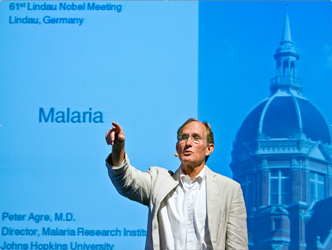 MICHAEL R. BLOOMBERG is the founder of Bloomberg LP, Philanthropist, UN Secretary-General’s Special Envoy for Cities and Climate Change, World Health Organization Global Ambassador for Noncommunicable Diseases, and three-term mayor of New York City.
MICHAEL R. BLOOMBERG is the founder of Bloomberg LP, Philanthropist, UN Secretary-General’s Special Envoy for Cities and Climate Change, World Health Organization Global Ambassador for Noncommunicable Diseases, and three-term mayor of New York City.
He is an entrepreneur and philanthropist who served as mayor of New York City from 2002-2013 after leading the company he started in 1981 for 20 years. Since leaving City Hall, he has resumed leadership of Bloomberg LP.
Bloomberg was elected mayor less than two months after the terrorist attacks of September 11, 2001. Under his leadership, the city rebounded faster and stronger than expected on issues ranging from education to health to economic development.
A lifelong philanthropist, Bloomberg founded Bloomberg Philanthropies, which focuses on five main areas: public health, education, the environment, the arts, and government innovation. He also leads a number of bi-partisan coalitions on urgent issues, including climate change, illegal guns, immigration reform, and infrastructure investment.
Bloomberg graduated from Johns Hopkins University and Harvard Business School.
Held by Peter Agre
 A native of Minnesota, PETER AGRE studied chemistry at Augsburg College (BA 1970) and medicine at Johns Hopkins (MD 1974). He completed his medical residency at Case Western Reserve University Hospital and oncology fellowship at the University of North Carolina at Chapel Hill. Agre joined the Johns Hopkins School of Medicine faculty in 1981 and rose to the rank of Professor of Biological Chemistry and Medicine. Following one term as Vice Chancellor of Science and Technology at Duke University Medical Center, Agre returned to Johns Hopkins in 2008 and serves as Director of the Johns Hopkins Malaria Research Institute at the Bloomberg School of Public Health. He oversees 20 faculty research groups, as well as field activities in Zimbabwe and Zambia.
A native of Minnesota, PETER AGRE studied chemistry at Augsburg College (BA 1970) and medicine at Johns Hopkins (MD 1974). He completed his medical residency at Case Western Reserve University Hospital and oncology fellowship at the University of North Carolina at Chapel Hill. Agre joined the Johns Hopkins School of Medicine faculty in 1981 and rose to the rank of Professor of Biological Chemistry and Medicine. Following one term as Vice Chancellor of Science and Technology at Duke University Medical Center, Agre returned to Johns Hopkins in 2008 and serves as Director of the Johns Hopkins Malaria Research Institute at the Bloomberg School of Public Health. He oversees 20 faculty research groups, as well as field activities in Zimbabwe and Zambia.
Agre is best known for discovery of the aquaporins, a family of water channel proteins found throughout nature. Referred to as “the plumbing system of cells,” aquaporin water channels confer high water permeability to cell membranes. First discovered in human erythrocytes, AQP1 has been characterized biophysically, the atomic structure of AQP1 was solved, and human AQP1-null humans were identified. Twelve homologous proteins exist in humans – transporting water (aquaporins) or transporting water plus glycerol (aquaglyceroporins). These proteins are required for generation of physiological fluids – urine, cerebrospinal fluid, aqueous humor, sweat, saliva, and tears. Involvement of aquaporins in multiple clinical states is becoming recognized – renal concentration, fluid retention, cataract, skin hydration, brain edema, neuromyelitis optica, thermal stress, glucose homeostasis, arsenic poisoning, and even malaria.
In 2003, Agre shared the Nobel Prize in Chemistry with Roderick MacKinnon of Rockefeller University “for discoveries concerning channels in cell membranes.” Agre is also a member of the National Academy of Sciences and the Institute of Medicine for which he chaired the Committee on Human Rights. He holds 18 honorary doctorates from around the world. He has received the Distinguished Eagle Scout Award from the Boy Scouts of America and Commandership in the Royal Norwegian Order of Merit from King Harald V. From 2009-11, Agre served as President and Chair of the Board of Advisors of the American Association for the Advancement of Science. As part of the AAAS Center for Science Diplomacy, Agre led visits of US scientists to North Korea, Myanmar Burma, Iran, and Cuba.
 MICHAEL R. BLOOMBERG is the founder of Bloomberg LP, Philanthropist, UN Secretary-General’s Special Envoy for Cities and Climate Change, World Health Organization Global Ambassador for Noncommunicable Diseases, and three-term mayor of New York City.
MICHAEL R. BLOOMBERG is the founder of Bloomberg LP, Philanthropist, UN Secretary-General’s Special Envoy for Cities and Climate Change, World Health Organization Global Ambassador for Noncommunicable Diseases, and three-term mayor of New York City.